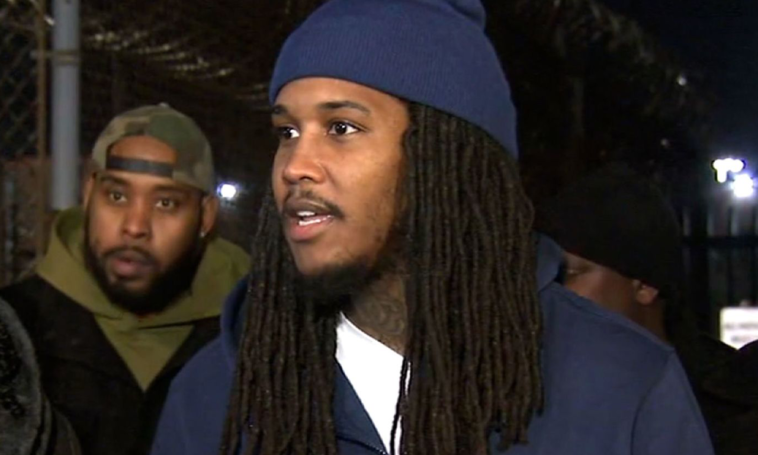After it was revealed that the trial’s key witness was legally blind, Chicago’s Darien Harris was released after 12 years in prison for murder.
Harris, now 30, was arrested at 18 for the 2011 petrol station murder of Rondell Moore. Harris was convicted in 2014 before graduating high school, but his release this week represents a turning point in his protracted legal battle.
“It doesn’t even feel real right now, but I made it,” Harris told reporters outside Cook County Jail. “It was difficult to be gone for 12 and a half years. But I fought and am here.”
Harris was tried based on Dexter Saffold, the principal shooting witness. Harris’s lawyers determined that Saffold was legally blind, a vital fact not revealed during the trial.
“Justice should be blind. “The eyewitness shouldn’t be blind,” said Harris’s lawyer, Lauren Myerscough-Mueller. “That is not how the justice system is supposed to work.”
Saffold’s legal blindness was revealed in 2019 by another inmate and Harris’ study. In a 2019 CBS interview, Saffold explained his legal blindness as glaucoma.
“They didn’t do anything wrong because they didn’t know,” Saffold said of the prosecutors. “I didn’t have to tell nobody about my medical history.”
A Cook County judge acquitted Harris in July. Harris was released when prosecutors abandoned their retrial plans.
Nakesha Harris called her son’s release “the best Christmas gift ever.” She said, “Feeling dreamlike. Feels fake. Maybe it’ll be genuine when I hold him.”
Harris’ lawyer hopes to attend law school to help falsely convicted people return to justice. Harris has remained optimistic despite growing up in prison, showing perseverance in an unjust legal system.
Darien Harris’s release highlights the judicial system’s vulnerability to false convictions. The case casts doubt on eyewitness testimony and the legal system’s duty to disclose all relevant facts, including disabilities, during trials.
Dexter Saffold’s legal blindness was not revealed at the initial trial, highlighting a systemic error. Legal experts say such evidence is essential for the defence to dispute a witness’s reliability and create a strong case. Harris’s case shows that justice should not be tainted by secret details that could affect a trial.
Harris’s attorney, Lauren Myerscough-Mueller, says, “Justice should be blind. The eyewitness should not be blind.” This sums up the issue: openness, justice, and a system that upholds the ideas it protects.
Harris’s release is a win for him and his family, but it illustrates the hurdles falsely convicted people confront. The long road to innocence and emotional toll on families make extensive legal reforms necessary. Harris’s perseverance is a monument to the human spirit, but it also puts into question the systems that prevent such injustices.
Harris’ tale resonates with criminal justice reformers as he prepares to enter law school and help wrongful conviction victims. The legal community is rapidly realising that systemic adjustments are needed to address issues like inaccurate eyewitness testimony and insufficient trial disclosure.
This case’s #WrongfulConviction and #LegalBlindness hashtags have generated social media discussions regarding justice system faults and their effects on victims.
In conclusion, Darien Harris’s release represents a personal victory and opens a dialogue on the need for legal system openness, accountability, and reform to prevent false convictions. His story inspires individuals who want a fair and just legal system that doesn’t allow concealed realities to undermine truth and justice.



Join the Community and Be a Part of the Conversation
You must be logged in or registered to post a comment.